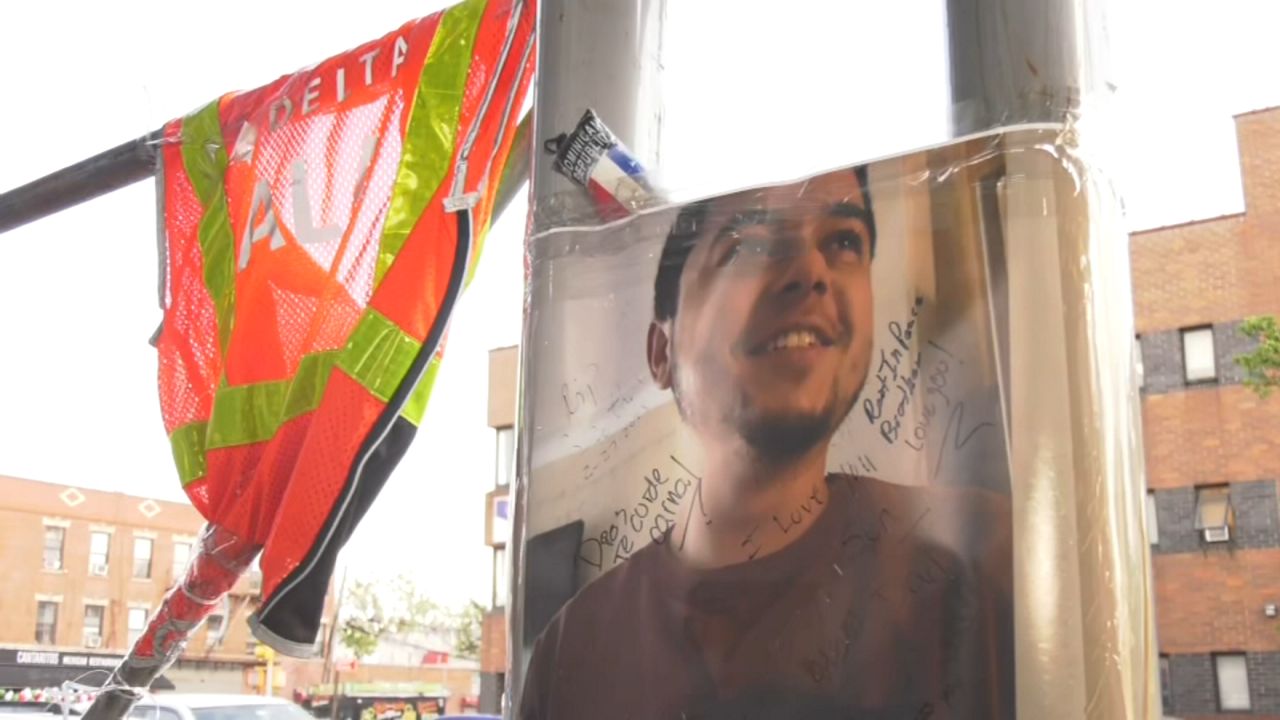The five boroughs have seen a triple-digit spike in catalytic converter thefts, NYPD officials said Thursday — and the City Council is gearing up to crack down on the crime.
The NYPD logged 7,000 catalytic converter thefts between Jan. 1 and Oct. 2 of this year, up by 238.16% from the same period last year, when drivers reported 2,070 thefts, police data shows.
The Bronx and parts of Brooklyn and Queens saw the largest increases year-to-date, Deputy Inspector Robert LaPollo, the commanding officer of the NYPD’s Auto Crime Unit, said at a City Council committee hearing Thursday morning.
What You Need To Know
- The NYPD logged 7,000 catalytic converter thefts between Jan. 1 and Oct. 2 of this year, up by 238.16% from the same period last year, when drivers reported 2,070 thefts, police data shows
- The Bronx and parts of Brooklyn and Queens saw the largest increases year-to-date, Deputy Inspector Robert LaPollo, the commanding officer of the NYPD’s Auto Crime Unit, said Thursday
- With thefts on the rise, the City Council has introduced a pair of bills aimed at deterring would-be converter crooks
The thefts, however, are not confined to those areas, LaPollo said.
“Those are the ones that are driving the spike, but it’s not unique to those boroughs. It’s actually occurring everywhere in the city,” he said. “The theft of catalytic converters has become nothing short of an automotive epidemic over the last few years.”
Catalytic converters, which transform toxic pollutants created by cars’ exhaust systems into less harmful gases, contain three pricey metals: rhodium, palladium and platinum, LaPollo explained.
The metals’ selling prices have soared in recent years, making converters desirable targets for thieves, he said.
“At these prices, the financial incentive simply has become too great, with unethical scrap yards and other buyers paying $250 or more for one catalytic converter,” he said. “For only a few minutes of work, thieves earn hundreds of dollars, while victims pay thousands.”
With thefts on the rise, the City Council has introduced a pair of bills aimed at deterring would-be converter crooks.
A bill co-sponsored by Upper West Side Councilwoman Gale Brewer would require second-hand dealerships and shops that buy converters to ask for information about the vehicles from which they were removed, as well as proof of ownership or authorization to sell.
Proposed legislation co-sponsored by Queens Councilwoman Linda Lee, meanwhile, would set up a program to distribute “etching kits” to drivers throughout the five boroughs. Outreach teams would help drivers use the kits to etch “identifying numbers” onto their catalytic converters, a summary of the bill says.
“Most catalytic converters lack unique identifiers,” LaPollo said at the hearing. “As a result, they are all interchangeable, making it impossible to prove that a converter sold to a scrap yard is the same converter that was stolen from a victim’s car.”
While the city has recorded thousands of thefts so far this year, only 53 alleged thieves have been arrested, “with a total of 139 arrests, meaning some were charged with multiple arrests,” he said.
Both Brewer and Lee on Thursday said their districts have been plagued by thefts.
“I know there was one block in my district that one night, I think every single car that was relevant got their catalytic converter stolen from,” Brewer said, adding that she had received “tons of complaints.”
Lee, whose district includes parts of Fresh Meadows, Queens Village and Glen Oaks, noted that many residents in her neighborhoods “rely heavily on cars” due to lack of public transit.
“This is happening very, very frequently,” Lee said. “All over the city, but [also] our district.”
“It’s insane how quickly people are able to take the catalytic converters off the cars,” she added. “And on top of all the rising costs, this is another burden that falls on a lot of our constituents and city residents.”
The City Council's press office on Thursday could not say when the legislation would be put to a vote.
Speaking virtually during Thursday's public comment session, a policy analyst for Citymeals on Wheels, Vik Bensen, said the thefts were hurting meal delivery organizations as well.
Citymeals delivers meals to homebound New Yorkers throughout the five boroughs.
"In the past year, home-delivered meal providers and older adult centers have reported frequent, repeated catalytic converter theft," Bensen said.
"When a delivery truck or transportation van has its converter stolen, replacing it will be a time-consuming and costly process that strains contracted funds and interrupts service to vulnerable, home-delivered meal recipients," Bensen added.








_Pkg_Car_Stolen_with_Child_Inside_Clean_FOR_APPROVAL_134114017_565)
